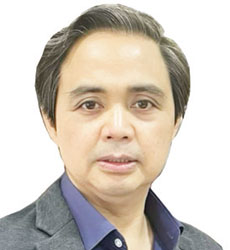THE May 2025 midterm elections portend good news to many ordinary voters. It is common knowledge that the money of both national and local candidates flows like a river during the campaign season. On the day of the election itself, it makes landfall in the pockets of voters. In the 2001, 2007, 2013 and 2019 midterm elections, economic indicators showed that public spending failed to substantially boost the country's gross domestic product (GDP) in the long run. Comparative figures from the World Bank confirmed that the GDP growth (percentage) between the midterm election year and the succeeding year did not really improve too much. In fact, in most years, they plummeted.
Election spending represents artificial streams of wealth and income that flow into the economy but never really rev it up to sustain steady growth. What we have observed is merely a surge in public consumption without any long-term economic benefit to poor households. Candidates would throw money into various expenses to ensure victory such as TV commercials, social media ads, posters, jingles, decals, celebrity endorsers and other campaign materials. Wads of peso bills, ranging from P1,000 to P3,000 per voter, are given as bribes by candidates to lock in the votes needed to win their elections. At the national level, the ruling party often taps into the public coffers as a war chest to extend cash assistance, medicines, livelihood and other social services. This also goes with the opposition forces, which cash in their reserves and campaign donations to outbid the ruling party for votes.
Continue reading with one of these options:
Ad-free access
P 80 per month
(billed annually at P 960)
- Unlimited ad-free access to website articles
- Limited offer: Subscribe today and get digital edition access for free (accessible with up to 3 devices)


